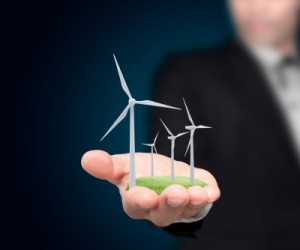The skills required to ensure a prompt and successful rollout of the government's renewable energy programme will have to be imported, according to Sandra Burmeister, chief executive of the Landelahni Recruitment Group.
"We have limited experience of renewable energy projects in this country," she says.
In March last year, the government approved its Integrated Resource Plan (IRP) for the energy sector, outlining its strategy for electricity generation in South Africa to 2030. The plan includes solar, wind, biomass and biogas projects.
In November this year, the government signed contracts with the first 'window' of 28 independent power producers (IPPs) to deliver 400 megawatts of renewable energy to the national grid – an investment of R47 billion into the energy sector.
A second group of 19 preferred bidders was announced back in May last year for window 2 of the procurement programme, which will be followed by window 3.
"Virtually all the new projects are joint ventures with international companies," says Burmeister. "Yet, senior executives of these partner companies are battling to get work permits.
"The IPP programme emphasises skills transfer and stresses the benefits it will bring to the local population. But skills transfer is achievable only if we have access to appropriate skills and experience at the outset."
She continues, "The quota for work permits for foreigners with 'scarce and critical' skills does not appear to make any provision for skills in renewable energy. In addition, tough immigration laws tend to discourage migrants."
The criteria used by the Department of Home Affairs must be aligned with national requirements, as delays in obtaining business work permits can set projects back by months, Burmeister adds.
In her opinion, the government should be bringing in these skilled people to build the renewable energy facilities, as it did for the construction of the Gautrain and the 2010 Fifa World Cup stadiums.
"It's critical to make the sourcing of skills a standard part of any bid."
Just recently, a Clean Energy Development and Finance Centre was established in Johannesburg by the Overseas Private Investment Corporation, the United States Trade and Development Agency, and the Export-Import Bank. The centre will provide technical and financial support for projects related to solar, wind, biomass, geothermal, hydropower, ocean energy and natural gas, in order to help implement these projects across sub-Saharan Africa while promoting US private-sector participation in the sector.
Burmeister concludes, "The development of renewable energy is regarded as being in the national interest, but the rewards of the programme will be achieved only with the alignment of all government departments involved."






